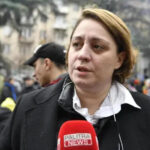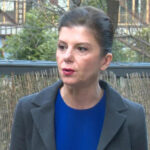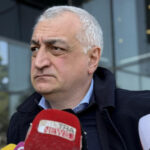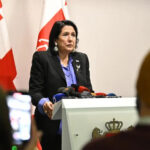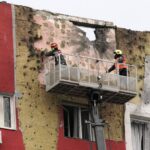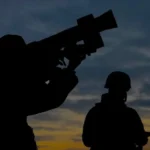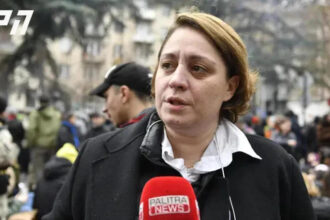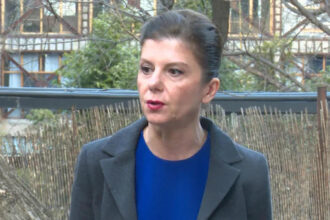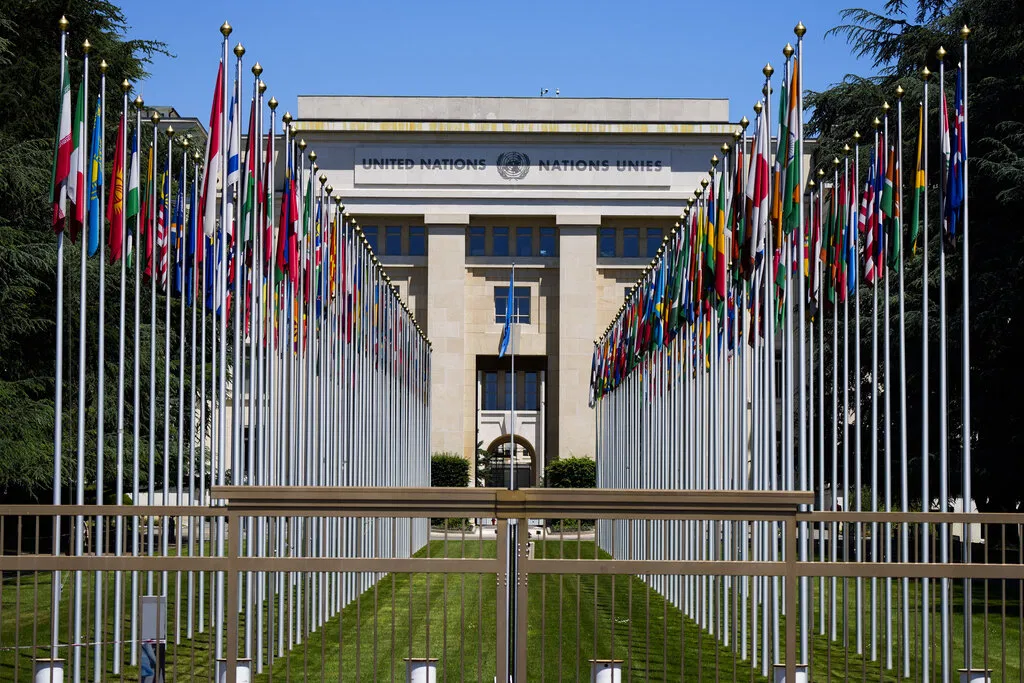The 62nd round, or Geneva International Discussions, was held on November 5-6 in Geneva. This multilateral format is designed to address the security and humanitarian effects of the 2008 Russia-Georgia War.
Georgian MFA Declaration
According to the Georgian Ministry of Foreign Affairs the Georgian delegation stressed the importance of Russia implementing the 2008 six-point agreement on ceasefire and the return of Georgian internally displaced persons (IDPs) and refugees back to their homes.
During the meeting the Georgian side addressed also security issues as well as the human rights and humanitarian situation caused by the destructive action of the Russian occupation regime within and along occupied territories.
Geneva Co-Chairs Communique
The GID Co-chairs’ press release states that “despite strongly diverging views, the participants were able to exchange views on key developments on ground”.
Magdalena Grono co-chaired this round for the very first time. She has just assumed her new role as EU Special Representative to the South Caucasus Crisis and Georgia.
The Communique stated that in Working Group I “the participants continued to discuss the implementation of the six-point agreement of 2008, with renewed focus and emphasis on non-use-of-force and international security arrangements.”
Working Group II focused on a number of humanitarian issues including freedom of movement and documentation, livelihoods, education, and missing persons. The Co-chairs stated that the main issues of the negotiations regarding the return of IDPs and refugees to their homes in occupied territories could not be fully addressed because of a walkout.
Russian MFA Statement
The Russian MFA’s statement emphasized “translating conciliatory signals from Tbilisi in practical terms, such that Georgia assumes legally binding guarantees of non-use-of-force” vis-à-vis the occupied territory and “launching the delimitation process” and “subsequent demarcation” with Tskhinvali & Sokhumi.
The Russian MFA stated that the relevance of these tasks is “conditioned by official Tbilisi’s recognition of the presence of political forces within Georgia and beyond its borders who are hatching plans for opening a “second front” against Russia in the occupied Abkhazia region and Tskhinvali as well as “continuous development in the country’s militaries in accordance with North Atlantic Alliance Standards.”
The statement complains about the refusal of representatives of the occupied areas to travel to New York “to present their position on the issue” and calls the “highly politized UN General Assembly Resolution on Internally Displaced Persons and Refugees” introduced by Tbilisi at the UN General Assembly “a stepping stone” on the humanitarian track.
The statement praised the IPRM in Ergneti along the Tskhinvali occupied line and said that “efforts were underway to launch a similarly IPRM” in Gali.
The Russian Foreign Ministry has stated that it has discussed with the Abkhazian, Ossetian and other participants the possibility of moving GID elsewhere “in light of Switzerland’s loss of neutrality de facto due to its acceptance of all the illegal anti-Russian measures imposed by the European Union”. It also promises to continue its efforts to change the venue of the GID negotiations.
Abkhaz participants
According to abkhaz sources the resumption in Gali of the activities of Incident Prevention and Response Mechanism was a key component of the discussions. Representatives of all delegations reiterated their commitment to re-establish the Mechanism. The opposing positions on the technical modalities for IPRM meetings were cited as a barrier to the realization of their intentions.
In Working Group II the Abkhaz participants concentrated on the freedom to move of citizens who hold so-called “national passes” of the occupied territory of Abkhazia. According to Abkhaz sources the next round of discussion will include an information session on this issue and the establishment of a working group.
South Ossetian Participants
Tskhinvali representatives also emphasized the issue of non-use of Force Agreement. Tskhinvali’s representatives also noted that the IPRM, which ensures stability along the border, is working effectively.
South Ossetian, Russian and Abkhaz representatives have raised the issue once again of moving the regular round from Geneva to a venue that is acceptable to all participants.
The next round of GID is scheduled to take place in March 2025.
Also read:
* 27/06/2024: 61st Geneva International Discussions
* 07/04/2024: 60th Round of Geneva International Discussions
* 07/12/2023 – 59th Geneva International Discussions
Matthew Miller: U.S. Won’t Hesitate Using Additional Measures
Prosecutor’s Office summons My Vote’s to Loraia over Vote Fraud Probe
My Vote Accuses CEC Of Involvement In Fraud Schemes
The Daily Beat: Tuesday, 22 October
Zakharova Speaks Of “Second Front”, Russia Is Ready To Help Tbilisi “Normalize Relationships” With Occupied Regions
Read More @ civil.ge

